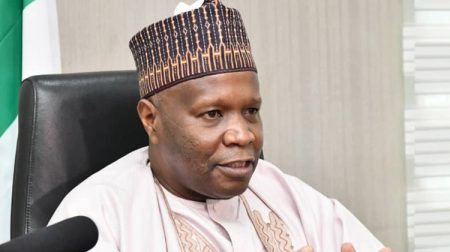Modernizing Nigeria’s Correctional System: A Comprehensive Overhaul Underway
Nigeria’s correctional system, burdened by outdated infrastructure and operational challenges, is undergoing a significant transformation under the leadership of President Bola Tinubu. A key element of this reform is the relocation of 29 correctional centres across the country, a move designed to address the inadequacies of facilities dating back to the 19th and early 20th centuries. Facilities like the Suleja Correctional Centre, established in 1914, and the Ikoyi facility, built in 1956, no longer meet modern standards for inmate welfare and security. This relocation initiative signifies a commitment to creating a more humane and effective correctional system that prioritizes rehabilitation and reintegration. The move is part of a larger modernization plan aimed at bolstering the entire correctional infrastructure and enhancing the overall effectiveness of the system.
This modernization effort extends beyond physical infrastructure to encompass the welfare of correctional officers. The government acknowledges the critical role these officers play in maintaining security and facilitating rehabilitation programs. Significant improvements in officer promotions and overall welfare have been implemented, addressing long-standing concerns within the service. For the first time, the promotion system has been comprehensively overhauled, ensuring timely career progression for officers and boosting morale. These efforts reflect a commitment to professionalizing the correctional service and recognizing the crucial contributions of its personnel. The combination of infrastructure upgrades and improved officer welfare aims to create a more robust and effective correctional system.
The acquisition of 39 new vehicles and five bullet-resistant guard booths further underscores the government’s commitment to modernizing the correctional service. The vehicles will significantly enhance the NCoS’s ability to transport inmates to and from courts, addressing a critical logistical challenge that has hampered the efficient administration of justice. This improved transportation capacity will directly contribute to reducing the number of awaiting-trial detainees, a persistent issue within the Nigerian correctional system. The bullet-resistant guard booths, strategically placed at high-security locations, will enhance security and protect against external threats, contributing to a safer environment for both staff and inmates. These acquisitions demonstrate a practical approach to addressing immediate needs within the correctional system.
The issue of awaiting-trial detainees is a significant concern within the Nigerian correctional system. With a substantial percentage of the inmate population comprised of individuals awaiting trial, the timely transport of inmates to court is crucial for ensuring a swift and fair judicial process. The new vehicles will directly address this challenge, facilitating more efficient court appearances and contributing to a reduction in the overall number of awaiting-trial detainees. This, in turn, will alleviate overcrowding in correctional facilities and create a more manageable environment for both inmates and staff. This focus on improving court attendance demonstrates a commitment to addressing a key factor contributing to the overcrowding and inefficiency of the system.
The government’s commitment to correctional reform extends beyond infrastructure and logistics to encompass a broader vision for the future of the Nigerian Correctional Service. This vision centers on professionalizing the service, emphasizing rigorous recruitment standards, and prioritizing ongoing training for officers. The goal is to transform the correctional system into one that focuses not just on punishment but also on rehabilitation and the successful reintegration of inmates back into society. This emphasizes the importance of equipping officers with the skills and knowledge necessary to facilitate rehabilitation programs and support inmates in their journey towards reintegration. This shift in focus underscores a commitment to a more humane and effective approach to corrections.
The ongoing reforms within the Nigerian Correctional Service reflect a comprehensive approach to addressing the challenges facing the system. From infrastructure upgrades and improved officer welfare to enhanced security measures and a renewed focus on rehabilitation, these initiatives demonstrate a commitment to creating a more just, secure, and humane correctional system. The acquisition of new vehicles and guard booths addresses immediate logistical and security needs, while the relocation of correctional centres and the focus on officer training represent long-term investments in the future of the service. This multifaceted approach demonstrates a commitment to comprehensive reform and a recognition of the interconnectedness of the various elements within the correctional system. The ultimate goal is to create a system that not only upholds the principles of justice and security but also contributes to the rehabilitation and successful reintegration of inmates back into society.














